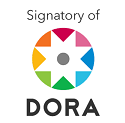Parental training in the educational of students with autism. Systematic review
Abstract
ABSTRACT
The purpose of this study was based on conducting a literature review on the parental training of students with autism. Articles published in Scielo, Scopus, web of Science and Redalyc databases between 2019 and 2025 were selected. A qualitative methodology of documentary analysis was applied. A structured data collection form was used for the collection of information. As a result, a final number of 17 studies was obtained. The findings showed a scarce scientific production on parental training in this context, which has suggested a limited interest in carrying out systematic review studies on this topic. As a conclusion, it has been necessary to encourage more in-depth and contextualized research, in order to actively integrate the voices of parents and children with ASD in the design and implementation of these programs, especially in the formal educational setting.
Downloads
References
Armijos, J., Quinto, E., Álvarez, L., Morocho, R., & Llerena, J. (2023). Intervention techniques in autism spectrum disorder: a systematic review. Revista Universidad y Sociedad, 15(4), 192-203. https://n9.cl/xcmdn
Chuqui, R., & Aldas, H. (2021). Estrategias metodológicas para la inclusión de estudiantes con discapacidad sensorial en la Educación Física. Revista Arbitrada Interdisciplinaria Koinonía, 6(4), 518-540. https://n9.cl/scdv7o
Collie, R. (2020). The development of social and emotional competence at school: an integrated model. International Journal of Behavioral Development, 44(1), 1-12. https://n9.cl/fpx2g
Durlak, J., Mahoney, J., & Boyle, A. (2022). What we know, and what we need to find out about universal, school-based social and emotional learning programs for children and adolescents: A review of meta-analyses and directions for future research. Psychological Bulletin, 148(11-12), 765. https://n9.cl/5gelw
Fernández, C., Tripailaf, C., & Arias, K. (2022). Desafíos de la educación emocional en el sistema educativo escolar chileno. Revista de estudios y experiencias en educación, 21(47), 272-286. https://n9.cl/e76ac
Fried, D. (2025). The Artistic Conversation: An ABR Multimodal Qualitative Innovation. International Journal of Qualitative Methods, 24, 16094069251364624. https://n9.cl/8hyx8
Fuentes, I., Sánchez, K., & López, M. (2022). La educación socioemocional de niños, adolescentes y jóvenes en Cienfuegos. Requisitos psicopedagógicos para la práctica. Conrado, 18(88), 457-465. https://n9.cl/xp81v3
García, L., Martí, M., Hidalgo, S., & Cabedo, J. (2025) Enhancing Emotional Intelligence in Autism Spectrum Disorder through Intervention: A Systematic Review. Eur J Investig Health Psychol Educ., 15(3), 33. https://n9.cl/watpv
Gardner, A., Wong, M., & Ratcliffe, B. (2021). Social-emotional learning for adolescents on the autism spectrum: High school teachers’ perspectives. Australasian Journal of Special and Inclusive Education, 45(1), 18-33. https://n9.cl/u42u8
Liu, T., Martínez-Torres, K., Mazzone, J., Camarata, S., & Lense, M. (2025). Brief Report: Telehealth Music-Enhanced Reciprocal Imitation Training in Autism: A Single-Subject Feasibility Study of a Virtual Parent Coaching Intervention. J Autism Dev Disord, 55, 2950-2962. https://doi.org/10.1007/s10803-023-06053-z
Molina, T., Lizcano, C., Burbano, L., & Isea, J. (2025). El discurso metacomunicativo como herramienta para el aprendizaje en el aula. Revista Conrado, 21(103), e4353. https://n9.cl/30pax
Ragonesi, L., Bruno, D., & Pérez, F. (2021). Inclusión educativa, aprendizaje y deseabilidad social en docentes de niños con trastorno del espectro autista de la CABA. Psocial, 7(1), 85-94. https://n9.cl/2bmu3
Sepideh, H. (2024) Fostering social-emotional competencies to improve social functioning, social inclusion, and school well-being: Results of a cluster non-randomized pilot study. Mental Health & Prevention, 36, 200365. https://n9.cl/wlgzaa
Tarver, J., Daley, D., Lockwood, J., & Sayal, K. (2019). Are self-directed parenting interventions sufficient for children with externalizing behavior problems? A meta-analysis European Child & Adolescent Psychiatry, 28(3), 319–335. https://n9.cl/2vb1k
Twomey, M. (2020). Can you hear me? Accessing the voice of the child with autism and their parent. Educação, 43(1), 35477. https://n9.cl/0woer
Copyright (c) 2025 Alicia Carmita Vásquez-Rodas

This work is licensed under a Creative Commons Attribution-NonCommercial-ShareAlike 4.0 International License.
LICENCIA DE CONTENIDO
Creative Commons
Atribución-NoComercial-CompartirIgual 4.0 Internacional (CC BY-NC-SA 4.0)
Política propuesta para revistas que ofrecen acceso abierto
Aquellos autores/as que tengan publicaciones con esta revista, aceptan los términos siguientes:
Usted es libre de:
Compartir — copiar y redistribuir el material en cualquier medio o formato
Adaptar — remezclar, transformar y construir a partir del material
La licenciante no puede revocar estas libertades en tanto usted siga los términos de la licencia
Bajo los siguientes términos:
Atribución — Usted debe dar crédito de manera adecuada, brindar un enlace a la licencia, e indicar si se han realizado cambios. Puede hacerlo en cualquier forma razonable, pero no de forma tal que sugiera que usted o su uso tienen el apoyo de la licenciante.
NoComercial — Usted no puede hacer uso del material con propósitos comerciales.
CompartirIgual — Si remezcla, transforma o crea a partir del material, debe distribuir su contribución bajo la lamisma licencia del original.
No hay restricciones adicionales — No puede aplicar términos legales ni medidas tecnológicas que restrinjan legalmente a otras a hacer cualquier uso permitido por la licencia.
DERECHOS DE AUTOR Y PERMISO
La revista permite que los autores tengan los derechos de autor sin restricciones.
La revista permite que los autores conserven los derechos de publicación sin restricciones; y garantizan a la revista el derecho de ser la primera publicación del trabajo.


















